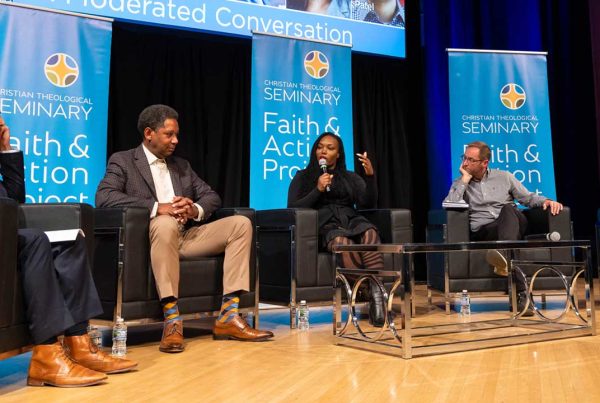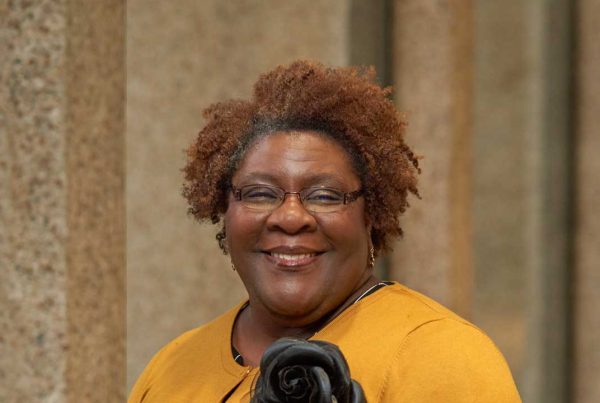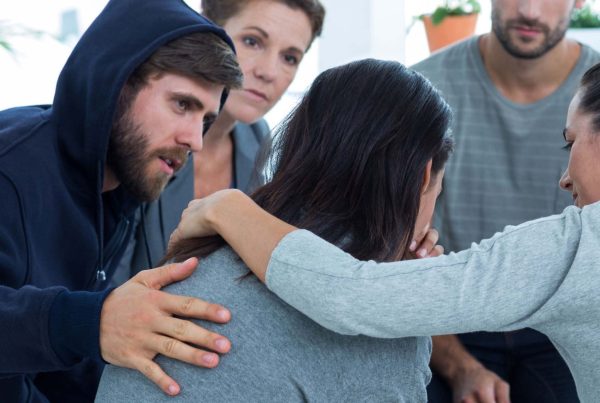Out of the “between places”
I hope that, by the time you read this note, we know who will serve as our president for the next four years. As I write it – a couple of days after Election Day – we are waiting. While the experts parse the data, pontificate on what it means and make their predictions, we live in what could be called a “between place.” Most of us don’t like that place. We’re accustomed to control. We consider it a virtue to dictate events and circumstances. That’s one reason why we are impatient with the length of time it takes to see change. Helping our neighbors in their paths to self-sufficiency isn’t something that happens overnight or in a few months. We must acknowledge the realities they face and give them grace when relapses happen. We must celebrate in the midst of the journey when one barrier has been removed or a person’s mindset or outlook has shifted. We need to see those “between places” as beautiful because our neighbors allow us to be a part of their journey out of poverty. In Spring of 2019, Father Greg Boyle addressed this kind of thinking at the Faith & Action Spring Conference. “Here is what we seek,” he said. “A compassion that can stand in awe at what the poor have to carry rather than stand in judgment at how they carry it.” What does it take to have that kind of compassion? In a message that has been echoed repeatedly in the course of Faith & Action Project gatherings, David Brooks offered his suggestion at our inaugural event. “Love is a word – and a powerful force – that should not be relegated to the private sphere alone, or to the spiritual aspect of life alone,” he said. “It has an indispensable place in public life and meaningful social change.” Of course, we already knew that answer. After all, our faith traditions teach us to love one another. They don’t say, “Love those who are self-sufficient.” Or, “Love those who have control of their lives.” They say, simply, “Love one another.” By the time you read this, we will, as a nation, likely know who our next president will be. But many among us will not know where their next meal will come from … how they’ll manage to pay the rent next month … whether they’ll pay for gas or medicine this week. They will continue to live in between places. And that is why we all must continue our work. “Between places” can ensnare people and rob them of hope. We must offer a beacon of hope that draws them out of darkness. So, let’s pledge together that we will put love to work, that we will cease to judge and begin to embrace, and that we will walk alongside those people who live in “between places” until they find their way out. If we do that, we just might find that, along the way, we have eliminated poverty. Lindsey Nell Rabinowitch Project Director, Faith & Action Project
Remembering a True Community Leader
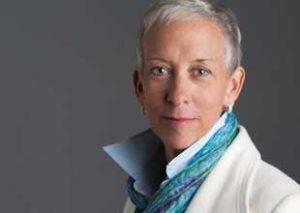 Tamara Zahn, who passed away unexpectedly in October, is best known to many in Indianapolis as the founder and longtime leader of Indianapolis Downtown Inc., but that description only scratches the surface of the many ways Tamara contributed to the community she loved. The Faith & Action Project was blessed to have her as a founding member of its Advisory Board, where she generously shared wisdom, passion and enthusiasm. “Some people change the energy level and ‘goodness factor’ whenever they enter a meeting room,” said Christian Theological Seminary Trustee and Faith & Action Advisory Board Member Mike Smith. “Tamara did both at every Advisory Board meeting she attended.” Faith & Action Project Director Lindsey Nell Rabinowitch praised Tamara’s encouragement and steadfast dedication to the Project’s mission. “She was a genuine person that cared deeply about those around her,” Rabinowitch said. “She would often remind us to continue to provide hope for the community, saying, ‘We need to double down on the FAITH and ACTION we stand for.’”
Tamara Zahn, who passed away unexpectedly in October, is best known to many in Indianapolis as the founder and longtime leader of Indianapolis Downtown Inc., but that description only scratches the surface of the many ways Tamara contributed to the community she loved. The Faith & Action Project was blessed to have her as a founding member of its Advisory Board, where she generously shared wisdom, passion and enthusiasm. “Some people change the energy level and ‘goodness factor’ whenever they enter a meeting room,” said Christian Theological Seminary Trustee and Faith & Action Advisory Board Member Mike Smith. “Tamara did both at every Advisory Board meeting she attended.” Faith & Action Project Director Lindsey Nell Rabinowitch praised Tamara’s encouragement and steadfast dedication to the Project’s mission. “She was a genuine person that cared deeply about those around her,” Rabinowitch said. “She would often remind us to continue to provide hope for the community, saying, ‘We need to double down on the FAITH and ACTION we stand for.’”
“Hopelessness is the enemy of justice”
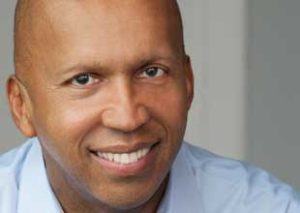 In a talk that no doubt offers a sample of what he’ll share at the 2021 Faith & Action Fall Event, author, activist and Equal Justice Initiative founder Bryan Stevenson chatted recently with St. Luke’s Methodist Church Pastor Rob Fuquay. Asked to explain the spiritual foundation for his work, Stevenson pointed to the passage from Micah that provides a foundation for the anti-poverty work CTS does through the Faith & Action Project “We can’t ignore the call to act justly, love mercy and walk humbly with God,” he said. Describing the role of faith communities in the fight for justice, Stevenson outlined four key measures: Get into proximity to those who are suffering; change the narrative, celebrating people’s strengths and gifts rather than their mistakes or circumstances; be hopeful and create hope for others (“Hopelessness is the enemy of justice,” he said); and be willing to do the uncomfortable and inconvenient things … including the ways the church has fallen short in the fight for justice. Watch a video of the conversation here.
In a talk that no doubt offers a sample of what he’ll share at the 2021 Faith & Action Fall Event, author, activist and Equal Justice Initiative founder Bryan Stevenson chatted recently with St. Luke’s Methodist Church Pastor Rob Fuquay. Asked to explain the spiritual foundation for his work, Stevenson pointed to the passage from Micah that provides a foundation for the anti-poverty work CTS does through the Faith & Action Project “We can’t ignore the call to act justly, love mercy and walk humbly with God,” he said. Describing the role of faith communities in the fight for justice, Stevenson outlined four key measures: Get into proximity to those who are suffering; change the narrative, celebrating people’s strengths and gifts rather than their mistakes or circumstances; be hopeful and create hope for others (“Hopelessness is the enemy of justice,” he said); and be willing to do the uncomfortable and inconvenient things … including the ways the church has fallen short in the fight for justice. Watch a video of the conversation here.
2020 Faith & Action Grants awarded
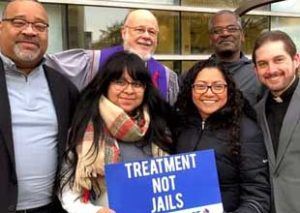 Four organizations have received 2020 Faith & Action Grants to support their efforts to turn back poverty in Central Indiana. A total of $100,000 is being awarded this year, meaning Christian Theological Seminary’s Faith & Action Project has, through the generosity of the Mike and Sue Smith Family Fund, awarded $515,000 in the past four years. This year’s recipients include:
Four organizations have received 2020 Faith & Action Grants to support their efforts to turn back poverty in Central Indiana. A total of $100,000 is being awarded this year, meaning Christian Theological Seminary’s Faith & Action Project has, through the generosity of the Mike and Sue Smith Family Fund, awarded $515,000 in the past four years. This year’s recipients include:
- Faith in Indiana $30,000. This grant will support Faith IN Indiana’s work to reduce incarceration and its impact on employment, income and long-term economic self-sufficiency. The nonprofit organization will use grant funds to build support for innovative policies that can fight crime without incarceration.
- Englewood Community Development Corporation $30,000. This grant will be used to deepen relationships between community partners and two schools newly located in the Englewood neighborhood, Purdue Polytechnic High School (PPHS) and Paramount School of Excellence (PSOE). The collaboration will mobilize community resources to enrich the quality of education received by the schools’ students, most of whom are people of color and/or from households facing poverty.
- Public Advocates in Community Re-Entry (PACE) $25,000. PACE will use its grant funds to remove barriers to successful re-entry for men and women coming out of prison and their families, expanding efforts that help people living in poverty make progress toward self-sufficiency through employment, recovery services and housing stability.
- Hovey Street Church of Christ Evolve Ministry $15,000. This grant will enable Hovey Street Church of Christ to expand its Evolve Ministry for teens struggling with trauma and educate its community on the tools necessary to overcome both mental and physical poverty. The ministry’s innovative collaboration with PACE will provide mentors for teens in the 46218 area-code.
To learn more about the grant program and current and past grant recipients, go to http://www.cts.edu/faith-action/grant-program/.
Worth Reading
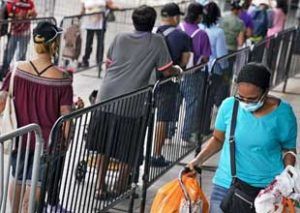 U.S. Poverty Hit a Record Low Before the Pandemic Recession, New York Times. A Census Bureau report reveals that U.S. poverty rates hit all-time lows before the global pandemic turned the economy upside-down – but the news might not be as rosy as it initially seems. A trio of New York Times reporters found that changes in data collection methods make long-term comparisons difficult, and underlying factors such as the number of people with health coverage might change the story. In addition, the COVID-19-related downturn most acutely affects those with the lowest incomes, meaning future numbers could show an increase in those living in poverty.
U.S. Poverty Hit a Record Low Before the Pandemic Recession, New York Times. A Census Bureau report reveals that U.S. poverty rates hit all-time lows before the global pandemic turned the economy upside-down – but the news might not be as rosy as it initially seems. A trio of New York Times reporters found that changes in data collection methods make long-term comparisons difficult, and underlying factors such as the number of people with health coverage might change the story. In addition, the COVID-19-related downturn most acutely affects those with the lowest incomes, meaning future numbers could show an increase in those living in poverty.
Mark your calendar
October 5, 2021: Faith & Action Fall Event


